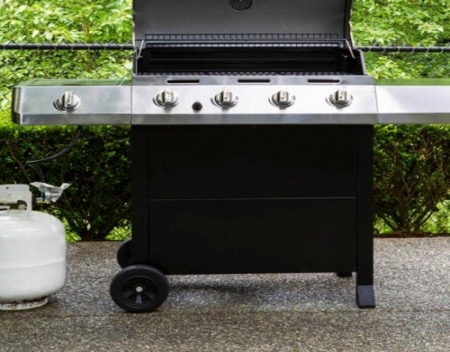Tipos de aparatos
- Aire acondicionado
- Automobile
- Chainsaw
- Circular Saw
- Lavaplatos
- Drills
- Secadora
- Drywall Screw Gun
- Horno
- Gas Fireplace
- Gas Grill
- Gas Patio Heater
- Grinder
- Heat Pump
- Impact Driver
- Impact Wrench
- Microonda
- Nailer
- Orbital Sander
- Calentadores de piscina
- Powerwall
- Distancia
- Refrigerador
- Television
- Lavadora
- Calentador de agua
Marcas de electrodomésticos
- A.O. Smith
- AccuCold
- Admiral Craft
- AGA
- Airrex
- Amana
- Ambiance
- American Range
- American Standard
- American Water Heaters
- Aquacal
- Armstrong
- Asko
- Avanti
- Avenlur
- Azure
- Beko
- Bellfires
- Bertazzoni
- Blackstone
- Blaze
- Blomberg
- BlueStar
- Bosch
- Bradford White
- Bromic
- Bryant
- Cafe
- Calcana
- Capital
- Carrier
- Char-Broil
- Char-Griller
- Chrysler
- Coates
- Coleman
- Comfortmaker
- Commercial Chef
- Continental
- Cosmo
- Cove
- Crown Verity
- Dacor
- Daikin
- Danby
- Danfoss
- DaVinci
- DCS
- Deco
- DeWALT
- Ducane
- Dyna-Glo
- Dyson
- EcoSmart
- Electrolux
- Element4
- Empava
- Equator
- Eurodib
- European Home
- Everdure
- Farberware
- Fhiaba
- FibroPool
- Fire Sense
- Fisher
- FiveStar
- Flare
- Flash Furniture
- Focus
- Ford
- Forno
- Forte
- Frigidaire
- Fulgor Milano
- Gaggenau
- GE
- General Motors
- GlowBrand
- Goodman
- Grundig
- GSW
- Haier
- Hayward
- Heatstar
- Heil
- Hestan
- Hisense
- Hitachi
- Hotpoint
- iio
- Ilve
- Impecca
- Ingignia
- Insignia
- JennAir
- John Wood
- Keeprite
- Kenmore
- Kenyon
- KitchenAid
- Kucht
- La Cornue
- Lennox
- LG
- Liebherr
- Lifetime
- Lion
- Luxaire
- Lynx
- Magic Chef
- Marvel
- Maytag
- McQuay
- MicroFridge
- Midea
- Miele
- Migali
- Monogram
- Montigo
- Mr Heater
- Napoleon
- Navien
- Nexgrill
- Noritz
- Panasonic
- Patio Comforts
- Payne
- Pentair
- Perlick
- PITT
- Premier
- Raypak
- Real Fyre
- Regency
- Reliance
- Rheem
- Rinnai
- Roma
- Ruud
- Saber
- Samsung
- Schwank
- Sharp
- Smeg
- Solas
- Sony
- Spartherm
- Speed Queen
- StaRite
- State Water Heaters
- Stiebel Eltron
- SubZero
- Summerset
- Summit
- SunGlo
- SunPak
- Sunpentown
- SunStar
- Superiore
- Takagi
- TCL
- TEC
- Tempstar
- Tesla
- Thermador
- Thor Kitchen
- Toshiba
- Town and Country
- Toyota
- Traeger
- Trane
- Twin Eagles
- U-Line
- Unique
- Vaillant Group
- Valor
- Verona
- Victory
- Viessmann
- Viking
- Vizio
- Weber
- Westinghouse
- Whirlpool
- Whynter
- York
- ZLINE
Categorías de artículos
- Aire Acondicionado
- Cuidado de los electrodomesticos
- Appliance News
- Dishwasher News
- Maquinas de secado
- Hornos
- Gas Fireplaces
- Microondas
- Calentadores de piscina
- Frigorificos
- Estufas - Cocinas
- Trucos y consejos
- Lavadoras
- Water Heaters
Más artículos
My Gas Grill Wont Light

When it comes to lighting a gas grill, it’s essential that the burners, electrodes, wires, and batteries be in good working condition. If one part is disconnected, dirty, or dead, it could be the reason your gas grill won’t light. Ahead are nine common problems that could be the root of your outage.
Dirt and debris may be blocking the grill’s burners.
A clogged or damaged burner could be the culprit keeping your gas grill from igniting. Over time, dirt, grime, and even insects can clog the tubes and ports beneath the burners, leaving them less likely to ignite. The burners will need to be inspected—but don’t forget to disconnect the grill from its fuel source beforehand.
Once this step is complete, you can air out the grill by leaving the lid open for a few minutes, then remove the grate to inspect what’s underneath. If debris is blocking the burners, clearing the dirt and grime could be the key to getting the grill back in action.
Dirt or rust may be affecting the igniter electrodes.
Gas grills rely on electrodes to spark the burner and ignite the gas. When the gas fails to ignite, it could be the fault of dirt or rust in the igniter electrodes. To check the electrodes, the gas supply will need to be disconnected first. Then, the cooking grate and flame tamer should be removed, and the igniter mounting screw pulled off to inspect the electrodes.
If they’re impacted by dirt or rust, they could be preventing your grill from lighting. A toothpick can help remove buildup, as can a toothbrush and bleach-free cleaner. Once the dirt or rust is removed, the electrodes can be dried with a paper towel before the burner is tested again. If it’s still not working, it may be time to replace the electrodes and take your grill to a repair specialist.
The propane tank may not be properly connected to the gas grill.
Another quick diagnostic includes checking to make sure the gas grill’s propane tank is connected correctly. The good news is the solution to this problem could be as simple as connecting the coupling nut to the tank’s cylinder valve. The coupling nut should be turned an additional half to three-quarters of an additional turn until it reaches a full stop.
No tools are necessary for this step; all adjustments should be made by hand to prevent stripping of the threads. Once the adjustments have been made, you should be able to give lighting another go.
The weather may be to blame for your gas grill not lighting.
In an ideal outdoor grilling world, the weather would be sunny and 75 degrees with no wind or rain in sight. But since outdoor conditions can’t be controlled, they can occasionally affect your grill’s ability to work properly. Moisture can prevent grills from lighting, as can freezing temperatures.
If you’re a seasonal griller, removing the battery igniter when it’s not in use may help. In climates with cold winters, water can freeze in gas lines, damaging or blocking them completely. To prevent freezing or to thaw the lines, you can bring your propane tank inside before grilling so that it warms to room temperature.
The grill’s igniter battery may be dead.
Because some gas grills operate with the help of an ignition battery, they’re dependent on an adequate charge. When the battery is charged and in good working condition, the grill should have no problem igniting. Since your gas grill won’t light, your grill’s igniter battery may be dead.
But before buying a replacement, it’s advised that you make sure the battery is positioned correctly and that its electrodes aren’t wet, oxidized, or corroded. You can clean the battery by wiping it down with a dry cloth or rubbing alcohol, then reinstall it to check if it ignites. If the grill still doesn’t light, it may be time for a new igniter battery.
SOURCE: bobvila.com

When it comes to lighting a gas grill, it’s essential that the burners, electrodes, wires, and batteries be in good working condition. If one part is disconnected, dirty, or dead, it could be the reason your gas grill won’t light. Ahead are nine common problems that could be the root of your outage.
Dirt and debris may be blocking the grill’s burners.
A clogged or damaged burner could be the culprit keeping your gas grill from igniting. Over time, dirt, grime, and even insects can clog the tubes and ports beneath the burners, leaving them less likely to ignite. The burners will need to be inspected—but don’t forget to disconnect the grill from its fuel source beforehand.
Once this step is complete, you can air out the grill by leaving the lid open for a few minutes, then remove the grate to inspect what’s underneath. If debris is blocking the burners, clearing the dirt and grime could be the key to getting the grill back in action.
Dirt or rust may be affecting the igniter electrodes.
Gas grills rely on electrodes to spark the burner and ignite the gas. When the gas fails to ignite, it could be the fault of dirt or rust in the igniter electrodes. To check the electrodes, the gas supply will need to be disconnected first. Then, the cooking grate and flame tamer should be removed, and the igniter mounting screw pulled off to inspect the electrodes.
If they’re impacted by dirt or rust, they could be preventing your grill from lighting. A toothpick can help remove buildup, as can a toothbrush and bleach-free cleaner. Once the dirt or rust is removed, the electrodes can be dried with a paper towel before the burner is tested again. If it’s still not working, it may be time to replace the electrodes and take your grill to a repair specialist.
The propane tank may not be properly connected to the gas grill.
Another quick diagnostic includes checking to make sure the gas grill’s propane tank is connected correctly. The good news is the solution to this problem could be as simple as connecting the coupling nut to the tank’s cylinder valve. The coupling nut should be turned an additional half to three-quarters of an additional turn until it reaches a full stop.
No tools are necessary for this step; all adjustments should be made by hand to prevent stripping of the threads. Once the adjustments have been made, you should be able to give lighting another go.
The weather may be to blame for your gas grill not lighting.
In an ideal outdoor grilling world, the weather would be sunny and 75 degrees with no wind or rain in sight. But since outdoor conditions can’t be controlled, they can occasionally affect your grill’s ability to work properly. Moisture can prevent grills from lighting, as can freezing temperatures.
If you’re a seasonal griller, removing the battery igniter when it’s not in use may help. In climates with cold winters, water can freeze in gas lines, damaging or blocking them completely. To prevent freezing or to thaw the lines, you can bring your propane tank inside before grilling so that it warms to room temperature.
The grill’s igniter battery may be dead.
Because some gas grills operate with the help of an ignition battery, they’re dependent on an adequate charge. When the battery is charged and in good working condition, the grill should have no problem igniting. Since your gas grill won’t light, your grill’s igniter battery may be dead.
But before buying a replacement, it’s advised that you make sure the battery is positioned correctly and that its electrodes aren’t wet, oxidized, or corroded. You can clean the battery by wiping it down with a dry cloth or rubbing alcohol, then reinstall it to check if it ignites. If the grill still doesn’t light, it may be time for a new igniter battery.
SOURCE: bobvila.com




